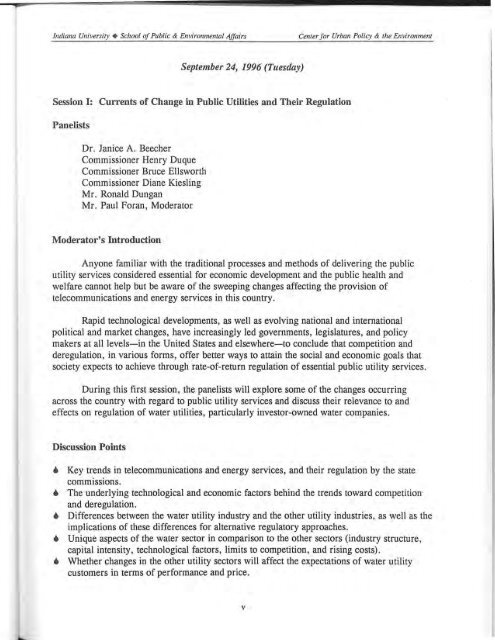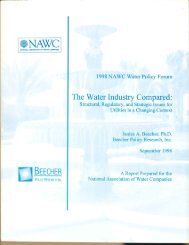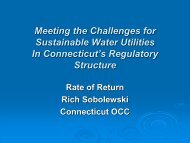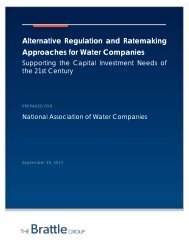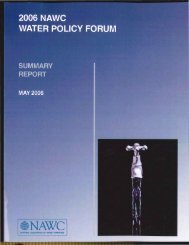CENTER FOR URBAN POLICY AND THE ENVIRONMENT - NAWC
CENTER FOR URBAN POLICY AND THE ENVIRONMENT - NAWC
CENTER FOR URBAN POLICY AND THE ENVIRONMENT - NAWC
Create successful ePaper yourself
Turn your PDF publications into a flip-book with our unique Google optimized e-Paper software.
Indiana University + School of Public & Environmental AffairsCenter for Urban Policy & the EnvironmentSeptember 24, 1996 (Tuesday)Session 1: Currents of Change in Public Utilities and Their RegulationPanelistsDr. Janice A. BeecherCommissioner Henry DuqueCommissioner Bruce EllsworthCommissioner Diane KieslingMr. Ronald DunganMr. Paul Foran, . ModeratorModerator's IntroductionAnyone familiar with the traditional processes and methods of delivering the publicutility services considered essential for economic development and the public health andwelfare cannot help but be aware of the sweeping changes affecting the provision oftelecommunications and energy services in this country.Rapid technological developments, as well as evolving national and internationalpolitical and market changes, have increasingly led governments, legislatures, and policymakers at all levels-in the United States and elsewhere-to conclude that competition andderegulation, in various forms, offer better ways to attain the social and economic goals thatsociety expects to achieve through rate-of-return regulation of essential public utility services.During this first session, the panelists will explore some of the changes occurringacross the country with regard to public utility services and discuss their relevance to andeffects on regulation of water utilities, particularly investor-owned water companies.Discussion Points• Key trends in telecommunications and energy services, and their regulation by the statecommissions.• The underlying technological and economic factors behind the trends toward competitionand deregulation.• Differences between the water utility industry and the other utility industries, as well as theimplications of these differences for alternative regulatory approaches.• Unique aspects of the water sector in comparison to the other sectors (industry structure,capital intensity, technological factors, limits to competition, and rising costs).• Whether changes in the other utility sectors will affect the expectations of water utilitycustomers in terms of performance and price.v


